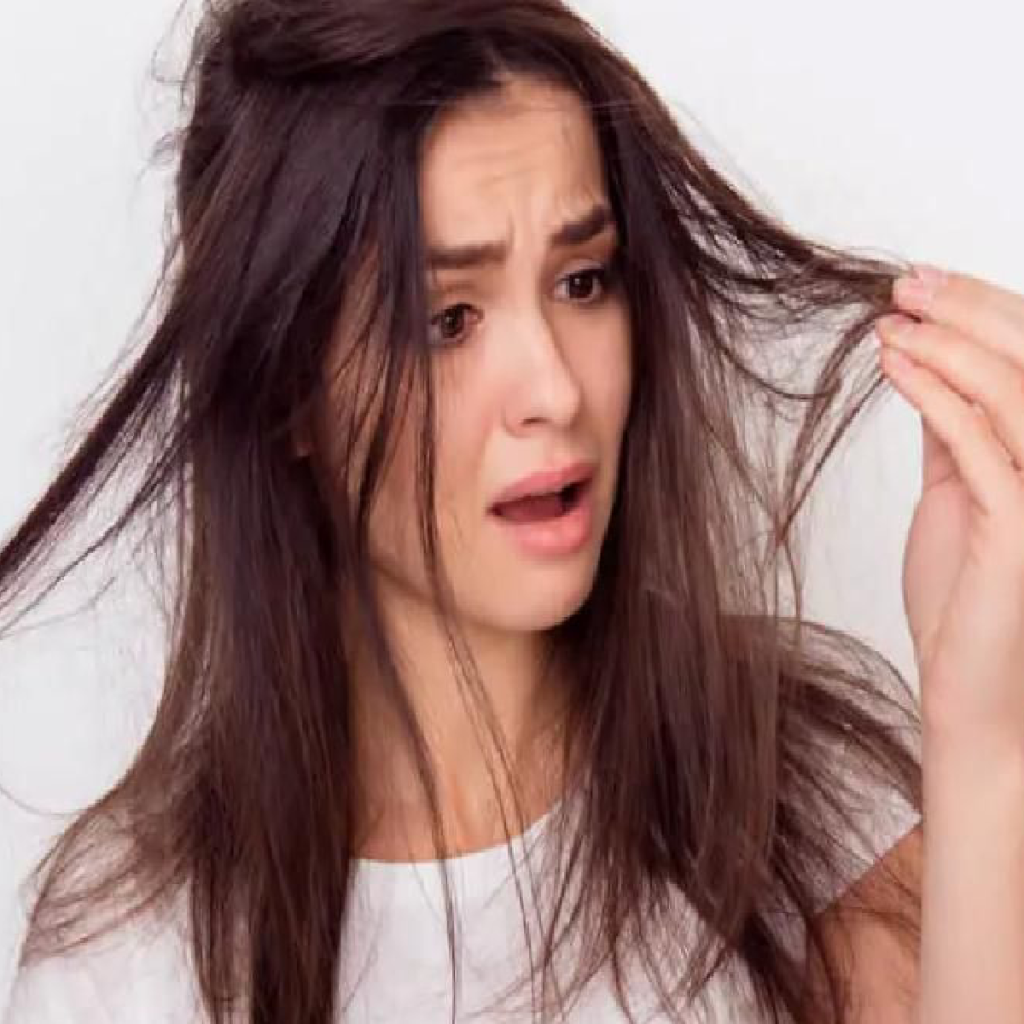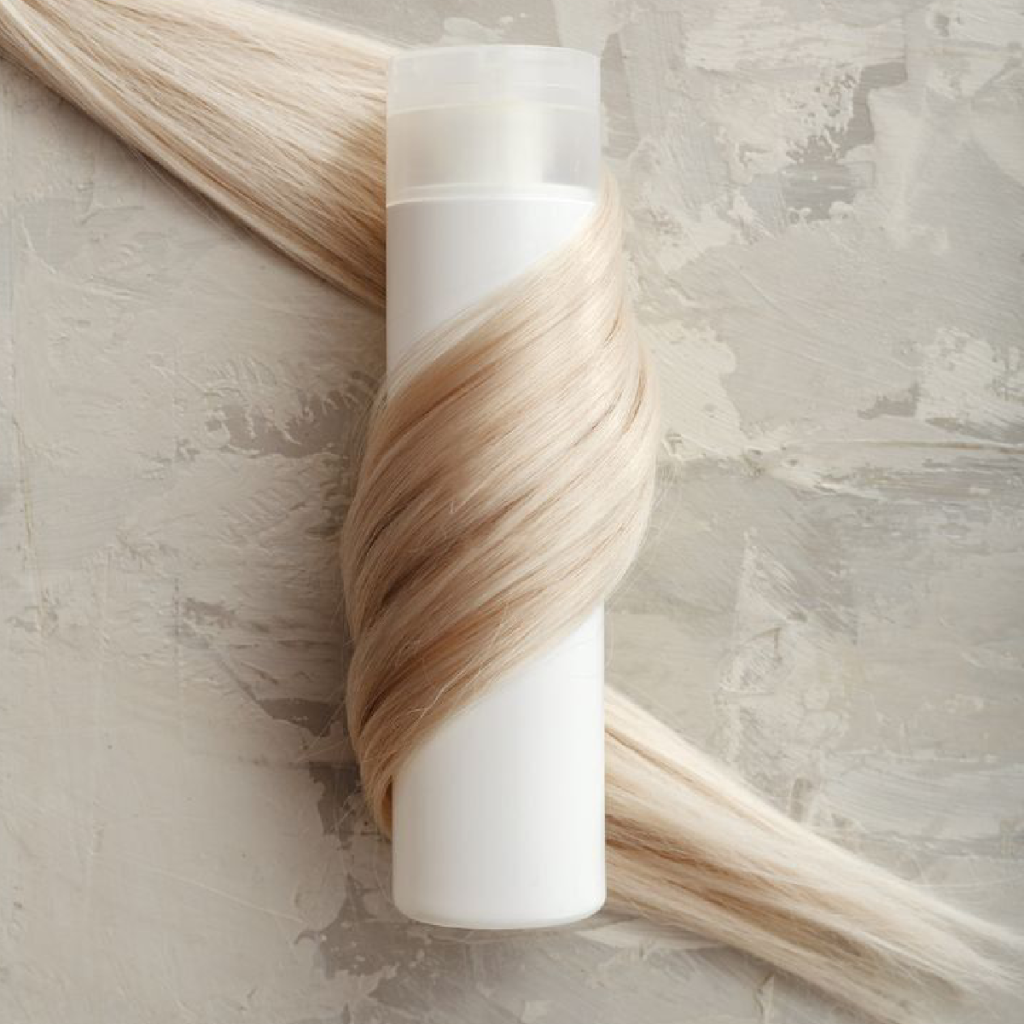Discover the truth about whether frequent swimming can lead to dryness or split ends.
Does Frequent Swimming Cause Dryness or Split Ends?
Are you a fan of taking a dip in the pool or splashing around at the beach? Do you love the feeling of weightlessness as you glide through the water? If you answered yes, then you’re probably familiar with the concerns about what frequent swimming can do to your hair. In this article, we’ll dive into the world of hair health and explore whether or not swimming can cause dryness or split ends. Get ready for a deep dive into the science behind hair health and the impact of chlorine on those luscious locks!

Understanding Hair Health and Swimming
Before we plunge headfirst into the effects of swimming on your hair, let’s take a moment to understand the basics of hair health. Your hair is comprised of a protein called keratin, which gives it its strength and structure. Each strand of hair contains three layers: the cuticle, cortex, and medulla. The cuticle, which is the outermost layer, acts as a protective barrier for the inner layers of the hair.
Hair health is influenced by various factors, including genetics, diet, and external stressors. Now, let’s delve deeper into the science behind hair health and how swimming can impact it.
The Science Behind Hair Health
When it comes to hair health, maintaining the moisture balance is crucial. Your hair naturally produces oils, known as sebum, to keep it hydrated. However, excessive washing or exposure to certain chemicals can strip away these natural oils, leaving your hair dry and brittle.
Now, here’s where swimming comes into play. Chlorine, a common chemical used in pool water, can wreak havoc on your hair. Let’s take a closer look at the impact of chlorine on hair health.
The Impact of Chlorine on Hair
Chlorine is a powerful disinfectant that helps maintain the cleanliness of pool water, but it can also be harsh on your hair. When you swim in chlorinated water, the chlorine molecules penetrate the hair shaft and strip away the protective cuticle layer. This can lead to moisture loss, making your hair more susceptible to dryness and damage.
But don’t worry, swimmers! There are ways to combat these effects and keep your hair looking fabulous. Let’s explore the connection between swimming and dry hair, and discover some tips to prevent dryness.
The Connection Between Swimming and Dry Hair
Swimming is a popular activity, especially during the summer months when the weather is hot and the pools are inviting. However, frequent exposure to chlorinated water can leave your hair feeling dry and lifeless. The combination of chlorine and the natural oils in your hair can create a drying effect, causing your hair to lose its shine and become brittle.
Furthermore, the sun’s UV rays can amplify the damaging effects of chlorine on your hair. UV radiation can weaken the hair shaft, making it more vulnerable to the harsh chemicals in pool water. This double whammy of chlorine and UV exposure can lead to hair that is not only dry but also prone to breakage and split ends.
Preventing Dryness: Tips for Swimmers
Now that we understand the potential effects of swimming on hair health, let’s explore some tips to prevent dryness and keep your locks looking luscious:
- Pre-Swim Protection: Before diving into the pool, wet your hair with fresh water. By saturating your hair with clean water, you create a barrier that helps minimize the absorption of chlorinated water.
- Swim Cap: Consider wearing a swim cap to protect your hair from direct contact with chlorinated water. Swim caps create a physical barrier, reducing the exposure of your hair to chlorine and other pool chemicals.
- Rinse Immediately: After swimming, rinse your hair thoroughly with fresh water. This helps remove any residual chlorine and prevents it from further damaging your hair.
- Deep Conditioning: Treat your hair to a deep conditioning treatment at least once a week. Deep conditioners help replenish moisture and nourish your hair, restoring its natural shine and softness.
- Protective Hairstyles: Opt for protective hairstyles, such as braids or buns, while swimming. These styles help minimize the exposure of your hair to chlorinated water and reduce friction, preventing tangles and breakage.
- Clarifying Shampoo: Use a clarifying shampoo once a week to remove any build-up of chlorine and other chemicals from your hair. Clarifying shampoos are specifically designed to deep cleanse and restore the natural balance of your hair.
- Leave-In Conditioner: Apply a leave-in conditioner to your hair before swimming. Leave-in conditioners create a protective barrier that helps seal in moisture and minimize the drying effects of chlorine.
By following these tips, you can enjoy the benefits of swimming while keeping your hair healthy and beautiful. Remember, prevention is key when it comes to maintaining hair health, so take proactive measures to protect your precious locks before taking a dip in the pool.
The Connection Between Swimming and Dry Hair
While swimming is a fantastic form of exercise and a refreshing way to beat the heat, it can indeed leave your hair feeling dry and parched. Here’s why:
When you dive into the pool or take a dip in the ocean, your hair is exposed to various factors that can strip away its natural moisture. Chlorinated water, commonly found in swimming pools, is one of the main culprits. Chlorine is used to kill bacteria and maintain water cleanliness, but it can also have detrimental effects on your hair.
As mentioned earlier, chlorinated water can strip away the natural oils from your hair, leaving it dehydrated. These oils, produced by your scalp, act as a protective barrier, keeping your hair moisturized and healthy. However, when exposed to chlorine, these oils are washed away, leaving your hair vulnerable to dryness and damage.
Additionally, the prolonged exposure to water can lead to ‘hygral fatigue,’ a condition where the hair swells when wet and contracts when dry. This constant swelling and drying cycle can weaken the hair strands over time, making them more prone to breakage. Imagine your hair going through this process every time you swim, and you can understand why dryness becomes a common concern for swimmers.
Now that we understand how swimming affects hair moisture levels, let’s splash into some tips to prevent dryness and keep your hair in fantastic shape.
Preventing Dryness: Tips for Swimmers
1. Pre-Swim Ritual: Before dipping your toes into the water, consider wetting your hair with fresh water. Wet hair absorbs less chlorinated water, minimizing the exposure and potential damage. This simple step can make a significant difference in preserving your hair’s natural moisture.
2. Conditioning Cap: Consider wearing a swim cap to create a protective barrier between your hair and the chlorinated water. This can significantly reduce the exposure of your hair to chlorine, helping to keep it hydrated. Swim caps come in various materials, so be sure to choose one that fits comfortably and covers your hair completely.
3. Rinse and Condition: After your swimming session, rinse your hair thoroughly with fresh water to remove any residual chlorine. It’s essential to get rid of chlorine as soon as possible to prevent it from further drying out your hair. Follow up with a deep conditioning treatment to replenish moisture and nourish your strands. Look for conditioners specifically designed for swimmers, as they often contain ingredients that can counteract the drying effects of chlorine.
Remember, prevention is key when it comes to keeping your hair healthy and hydrated while swimming. By following these tips, you can enjoy your swim without worrying about dry and damaged hair.
Now that we’ve discussed the connection between swimming and dry hair, let’s move on to explore the potential link between swimming and split ends.
Swimming and Split Ends: Is There a Link?
Picture this: you’re enjoying a swim in the crystal-clear water, and suddenly, the dreaded thought of split ends pops into your mind. Is there any truth to the concern that swimming can cause split ends? Let’s dive deeper and find out.
The Role of Swimming in Hair Damage
While swimming itself doesn’t directly cause split ends, the factors associated with swimming can contribute to their formation. As mentioned earlier, chlorine can strip away the protective cuticle layer, leaving your hair vulnerable to damage and breakage. When weakened strands are exposed to the friction caused by swimming or brushing, split ends can occur.
Now that we understand the role of swimming in hair damage, let’s explore some tips to protect your hair and keep those split ends at bay.
How to Protect Your Hair from Split Ends
1. Regular Trims: Regularly trimming your hair helps remove split ends and keeps your hair looking healthy. Aim to trim your hair every 6-8 weeks to prevent split ends from traveling up the hair shaft.
2. Gentle Handling: Treat your hair with care to minimize breakage. Avoid vigorous towel drying and opt for a microfiber towel or cotton t-shirt to gently blot excess water from your hair.
3. Moisturize and Seal: Regularly moisturize your hair to keep it hydrated and seal in moisture with a nourishing oil or serum. This helps strengthen your hair and prevents split ends.
Now that we’ve explored the potential link between swimming and split ends, let’s hear from the experts and get their opinions on swimming and hair health.
Expert Opinions on Swimming and Hair Health
What do dermatologists and hair stylists have to say about the impact of swimming on hair health? Let’s find out!
Dermatologists’ Views on Swimming and Hair Damage
Dermatologists believe that the chlorine in pool water can indeed cause damage to your hair. They recommend taking precautions such as wetting your hair before swimming and rinsing it thoroughly afterward to minimize exposure. Additionally, they advise using deep conditioning treatments to restore moisture and protect your hair.
Hair Stylists’ Tips for Swimmers
When it comes to swimmers’ hair, hair stylists have some valuable insights to offer. They suggest using a clarifying shampoo once a week to remove residual chlorine and mineral buildup. They also emphasize the importance of a proper hair care routine, including moisturizing masks and leave-in conditioners, to keep your hair healthy and hydrated.
Now that you’ve heard from the experts, let’s wrap up this article with some practical tips to maintain healthy hair despite frequent swimming.
Practical Tips for Healthy Hair Despite Frequent Swimming
Chlorine may be the enemy of hair health, but fear not! With the right strategies and products, you can keep your hair looking fabulous even if you’re a frequent swimmer. Here are some practical tips to help you along the way:

Choosing the Right Hair Products for Swimmers
Opt for shampoos and conditioners specifically formulated for swimmers. These products are designed to remove chlorine and mineral buildup while replenishing moisture. Look for ingredients like coconut oil, shea butter, and vitamin E, which help nourish and protect your hair.
The Importance of Hair Care Routine for Swimmers
Establishing a hair care routine tailored to swimmers is essential for maintaining healthy hair. Consider incorporating deep conditioning treatments, moisturizing masks, and protective styling into your regimen. These steps will help protect your hair from the drying effects of chlorine and minimize damage.
So, dear swimmers, fear not the pool or the ocean! With a little extra care and the right products, you can enjoy the wonders of swimming while keeping your hair healthy and happy. Dive in, have fun, and let your gorgeous locks make waves!





